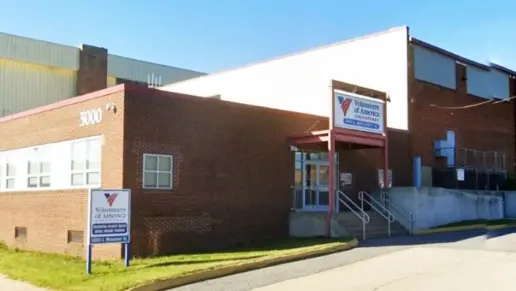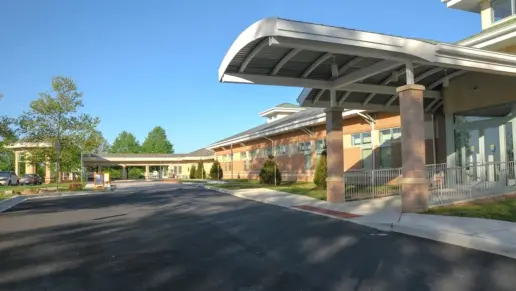About Allegany County Health Department – Joseph S. Massie Unit
Allegany County Health Department is a government-run agency. They have an outpatient behavioral health facility located in Cumberland, Maryland. The facility treats adults with substance use disorder and alcohol use disorder.
They treat people who have mental health conditions and addiction issues at the same time. They also have services for justice system clients.
You will have a full assessment when you come in. This will determine the level of your substance use disorder and the type of treatment you need.
The staff is medically trained. They provide buprenorphine maintenance and other medically assisted treatment (MAT) to people who experience intense side effects from withdrawal.
If you need inpatient treatment, the staff can refer you to a facility operated by the county. If you need a high level of care, but not inpatient treatment, you will enter the intensive outpatient program (IOP). Clients in this program come in for treatment several times a week for a few hours a day. They also offer a standard outpatient program.
You will take part in group and individual therapy. Your individual sessions will be custom to your needs. Group therapy sessions are often age and gender specific.
If you need social services, such as housing and employment assistance, they may be able to help. They also have programs for gambling addictions.
They offer a Jail Substance Abuse Program (JSAP). This program provides a series of support groups for adults who have been incarcerated for drug-related charges. They provide a 12-hour drug education program. People who are convicted of driving under the influence of alcohol or drugs are often ordered to take these classes.
Other Forms of Payment
Private insurance refers to any kind of healthcare coverage that isn't from the state or federal government. This includes individual and family plans offered by an employer or purchased from the Insurance Marketplace. Every plan will have different requirements and out of pocket costs so be sure to get the full details before you start treatment.
Self-pay involves paying for treatment out of your own pocket. You can use savings or credit, get a personal loan, or receive help from family and friends to fund your treatment. If you don't have insurance or your insurance plan doesn't cover a specific program, self-pay can help ensure you still get the care you need.
Sliding scale payments are based on a client's income and family size. The goal is to make treatment affordable to everyone. By taking these factors into account, addiction recovery care providers help ensure that your treatment does not become a financial burden to you or your family, eliminating one barrier to care.
Medicare is a federal program that provides health insurance for those 65 and older. It also serves people under 65 with chronic and disabling health challenges. To use Medicare for addiction treatment you need to find a program that accepts Medicare and is in network with your plan. Out of pocket costs and preauthorization requirements vary, so always check with your provider.
Medicaid is a state based program that helps lower-income individuals and families pay for healthcare. Medicaid covers addiction treatment so those enrolled can use their coverage to pay for rehab. When a program accepts Medicaid the client often pays very little or nothing out of their own pocket.
Addiction Treatments
Levels of Care
Treatments
The goal of treatment for alcoholism is abstinence. Those with poor social support, poor motivation, or psychiatric disorders tend to relapse within a few years of treatment. For these people, success is measured by longer periods of abstinence, reduced use of alcohol, better health, and improved social functioning. Recovery and Maintenance are usually based on 12 step programs and AA meetings.
Once a person has become addicted to a substance, drug rehab in Maryland is often necessary to overcome that addiction. These programs provide the tools individuals need to manage the physical, mental, and emotional issues involved and begin a successful recovery journey.
Many of those suffering from addiction also suffer from mental or emotional illnesses like schizophrenia, bipolar disorder, depression, or anxiety disorders. Rehab and other substance abuse facilities treating those with a dual diagnosis or co-occurring disorder administer psychiatric treatment to address the person's mental health issue in addition to drug and alcohol rehabilitation.
Substance rehabs focus on helping individuals recover from substance abuse, including alcohol and drug addiction (both illegal and prescription drugs). They often include the opportunity to engage in both individual as well as group therapy.
Programs


Clinical Services
Group therapy is any therapeutic work that happens in a group (not one-on-one). There are a number of different group therapy modalities, including support groups, experiential therapy, psycho-education, and more. Group therapy involves treatment as well as processing interaction between group members.
In individual therapy, a patient meets one-on-one with a trained psychologist or counselor. Therapy is a pivotal part of effective substance abuse treatment, as it often covers root causes of addiction, including challenges faced by the patient in their social, family, and work/school life.
Research clearly demonstrates that recovery is far more successful and sustainable when loved ones like family members participate in rehab and substance abuse treatment. Genetic factors may be at play when it comes to drug and alcohol addiction, as well as mental health issues. Family dynamics often play a critical role in addiction triggers, and if properly educated, family members can be a strong source of support when it comes to rehabilitation.
Active addiction robs your body of nutrients. You need to restore a balanced diet to sustain recovery. Nutrition therapy helps you do this. You'll learn about the best foods for mental and physical health and how to establish healthier eating patterns in your life.
Accreditations

The Commission on Accreditation of Rehabilitation Facilities (CARF) is a non-profit organization that specifically accredits rehab organizations. Founded in 1966, CARF's, mission is to help service providers like rehab facilities maintain high standards of care.
CARF Accreditation: Yes
Contact Information
10102 Country Club Road SE
Cottage 3
Cumberland, MD 21502


